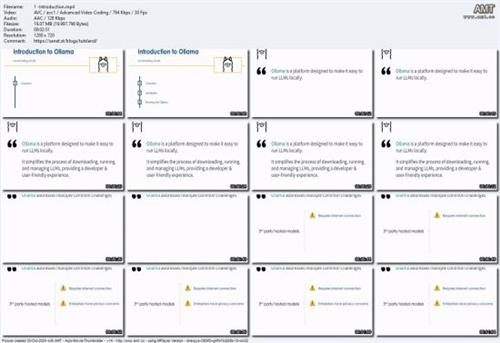Master Data Structures and Algorithms in Java
Master Data Structures and Algorithms in Java
![Master Data Structures and Algorithms in Java]()
What you'll learn
Become more confident and prepared for your next coding interview
Learn, implement and use different Algorithms in Java Programming Language
Learn, implement, and use different Data Structures in Java Programming Language
Learn Arrays and linked lists in Java
Requirements
Need to have basic of coding knowledge
Description
Data Structures and Algorithms (DSA) are essential components of computer science, offering systematic approaches to organizing data and solving computational problems efficiently. In Java, a popular object-oriented language, DSA becomes particularly powerful due to its extensive library support and consistent performance. Data structures—such as arrays, linked lists, stacks, queues, trees, hash tables, and graphs—form the foundation of how data is organized, accessed, and modified.Algorithms are the procedures that operate on these data structures. Searching algorithms like binary search optimize data retrieval by narrowing down search spaces in sorted data, reducing time complexity to O(log n). Sorting algorithms such as merge sort, quicksort, and insertion sort play a critical role in data organization, each offering unique trade-offs in time and space complexity. Merge sort and quicksort are divide-and-conquer algorithms that partition data to sort it efficiently, often with logarithmic or linearithmic complexity. Arrays and linked lists represent linear data structures; arrays offer quick access but fixed size, while linked lists enable dynamic sizing but require sequential access. Mastering data structures and algorithms in Java equips programmers with skills to design scalable applications, making optimal use of resources and ensuring responsive software. Proficiency in DSA also prepares developers for more complex programming challenges, such as implementing custom data structures or optimizing algorithms for high performance, both critical in advanced computing and industry applications.
Who this course is for
Anyone preparing for programming interviews
Software Developers
Homepage:
![Master Data Structures and Algorithms in Java]()
Say "Thank You"
rapidgator.net:
ddownload.com:

Published 10/2024
MP4 | Video: h264, 1280x720 | Audio: AAC, 44.1 KHz, 2 Ch
Language: English | Duration: 1h 2m | Size: 540 MB
Learn the Data Structures and Algorithms in Java and Be able to ace the interviews!
MP4 | Video: h264, 1280x720 | Audio: AAC, 44.1 KHz, 2 Ch
Language: English | Duration: 1h 2m | Size: 540 MB
Learn the Data Structures and Algorithms in Java and Be able to ace the interviews!
What you'll learn
Become more confident and prepared for your next coding interview
Learn, implement and use different Algorithms in Java Programming Language
Learn, implement, and use different Data Structures in Java Programming Language
Learn Arrays and linked lists in Java
Requirements
Need to have basic of coding knowledge
Description
Data Structures and Algorithms (DSA) are essential components of computer science, offering systematic approaches to organizing data and solving computational problems efficiently. In Java, a popular object-oriented language, DSA becomes particularly powerful due to its extensive library support and consistent performance. Data structures—such as arrays, linked lists, stacks, queues, trees, hash tables, and graphs—form the foundation of how data is organized, accessed, and modified.Algorithms are the procedures that operate on these data structures. Searching algorithms like binary search optimize data retrieval by narrowing down search spaces in sorted data, reducing time complexity to O(log n). Sorting algorithms such as merge sort, quicksort, and insertion sort play a critical role in data organization, each offering unique trade-offs in time and space complexity. Merge sort and quicksort are divide-and-conquer algorithms that partition data to sort it efficiently, often with logarithmic or linearithmic complexity. Arrays and linked lists represent linear data structures; arrays offer quick access but fixed size, while linked lists enable dynamic sizing but require sequential access. Mastering data structures and algorithms in Java equips programmers with skills to design scalable applications, making optimal use of resources and ensuring responsive software. Proficiency in DSA also prepares developers for more complex programming challenges, such as implementing custom data structures or optimizing algorithms for high performance, both critical in advanced computing and industry applications.
Who this course is for
Anyone preparing for programming interviews
Software Developers
Homepage:
https://www.udemy.com/course/master-data-structures-and-algorithms-in-java/Screenshots

Say "Thank You"
rapidgator.net:
ddownload.com: